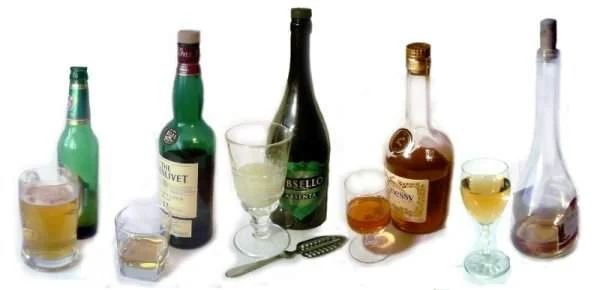Be careful with the alcohol this holiday season. Yes, a new study has confirmed what most people have long suspected: alcohol can directly influence a person to have unsafe sex.
And the more you pour booze down your throat, the more likely you are to have unsafe sex.
The act of unsafe sex is one of the key factors in HIV infection and it’s obviously the main risk factor globally. Even though the public knows this, continual efforts to prevent HIV have not had much success. In the wealthiest countries like the US and UK the HIV rate has not changed over the past decade.
In some cases the rate has even increased.

That’s why the mission to find better ways to prevent unsafe sex is an important goal of public health efforts for HIV/AIDS prevention.
Consumption of alcohol, especially heavy drinking, has been linked to HIV incidence for a long time. The problem is that there have always been doubts about the nature of the cause-and-effect relationship.
Researchers were never sure if consumption of alcohol caused HIV due to unsafe sex, or if the personality of the individuals was what led to unsafe sex because of traits like sensation-seeking or a disposition to risky behavior in general.
The study – published in the January issue of the journal Addiction – explains the results of 12 systematic experiments that tested the cause-and-effect relationship. When the results were gathered the researchers discovered that drinking alcohol influences decision-making, and this influence increases based on the amount of alcohol consumed.
The more alcohol that research subjects consumed, the higher their willingness to engage in unsafe sex.
For the experiments, participants were randomly assigned to one of two groups in which they either consumed alcohol or did not. Then their intention to have unsafe sex was measured. An increase in blood alcohol level of 0.1 mg/mL meant an increase of 5.0% (95% CI: 2.8% – 7.1%) in the indicated likelihood of engaging in unprotected sex. This result remained constant in sensitivity analyses geared towards correcting for a potential publication bias.
“Drinking has a causal effect on the likelihood to engage in unsafe sex, and thus should be included as a major factor in preventive efforts for HIV,” notd Dr. J. Rehm, the Principal Investigator of the study.
“This result also helps explain why people at risk often show this behavior despite better knowledge: alcohol is influencing their decision processes.”
Rehm also recommended that future HIV/AIDS prevention programs include the results of the above-mentioned study. Indeed, efforts to reduce drinking, and especially to reduce heavy drinking, will not only help avoid damaging the immune system, but will likely work to decrease the chance of engaging in unsafe sex, therefore reducing the number of new HIV infections.






